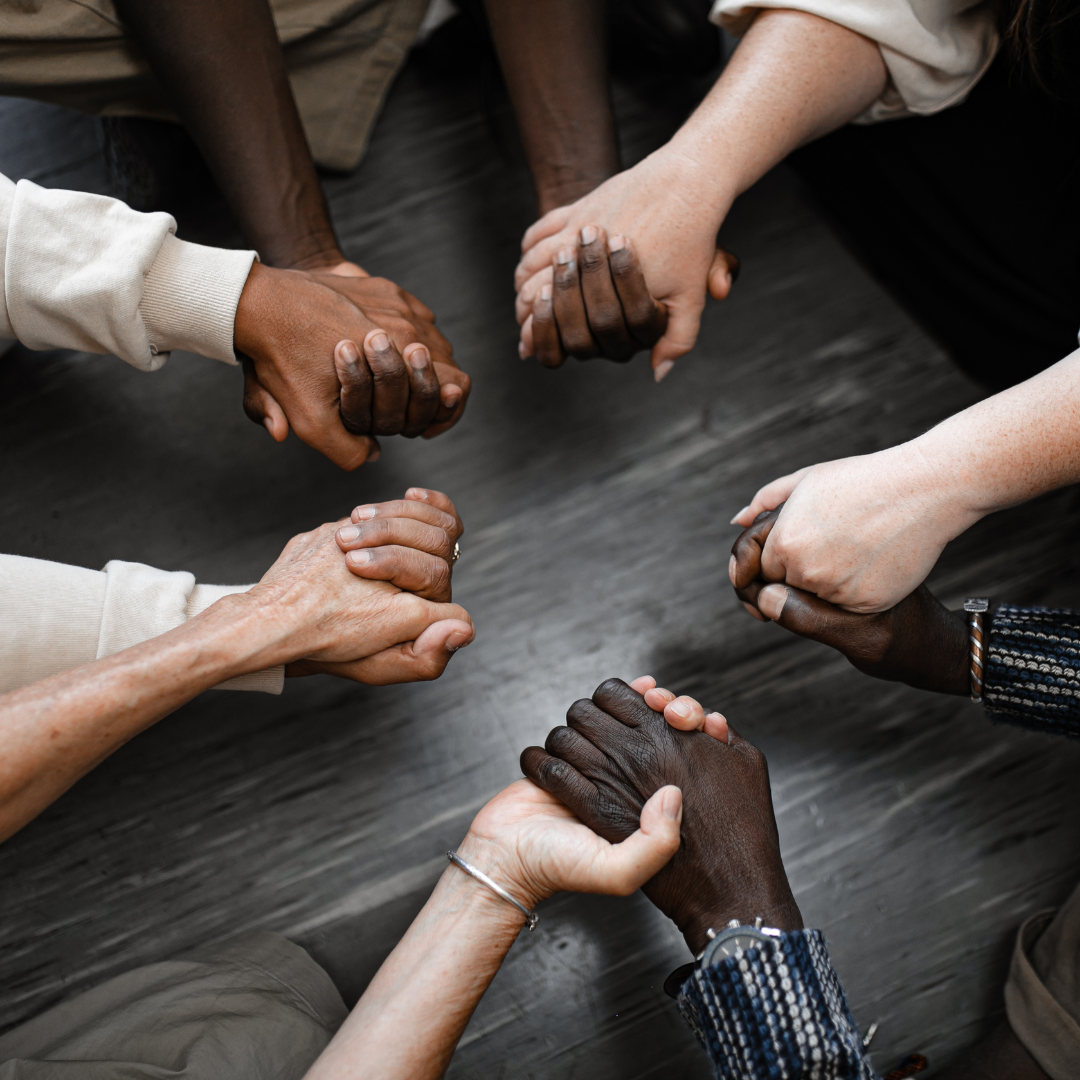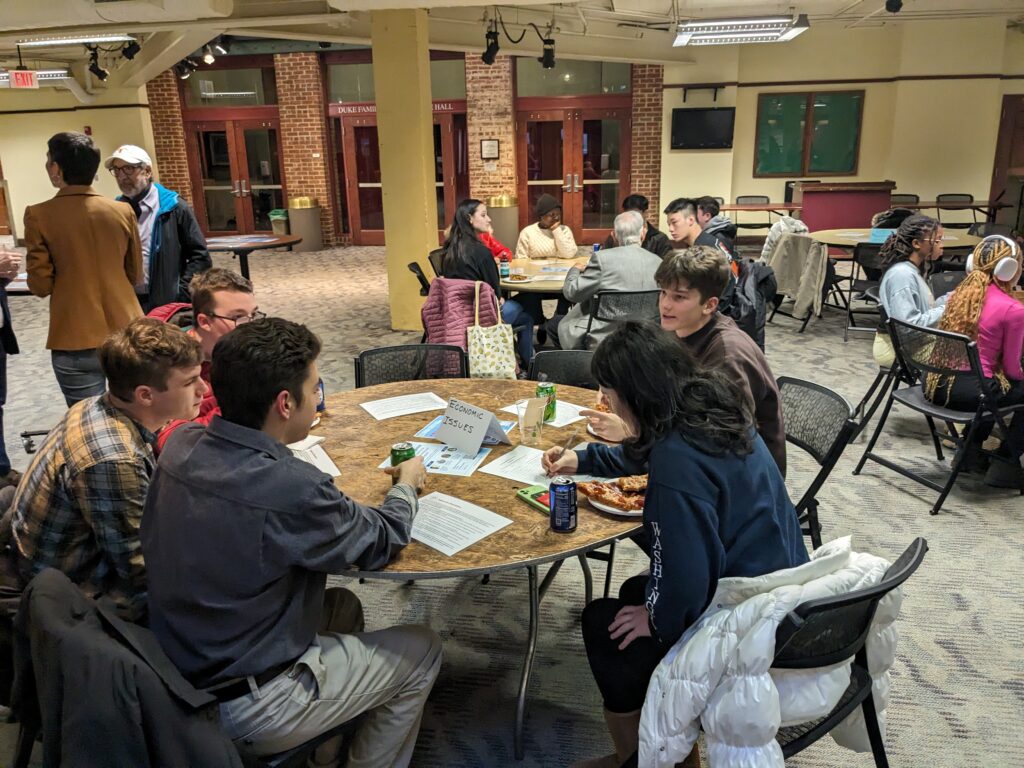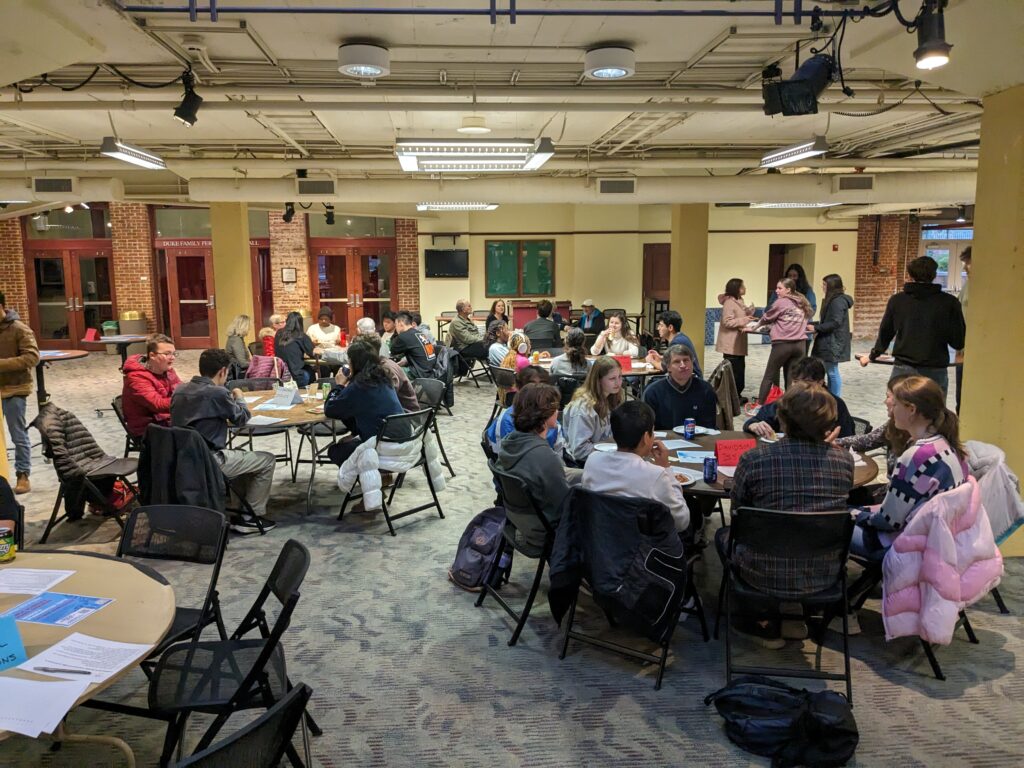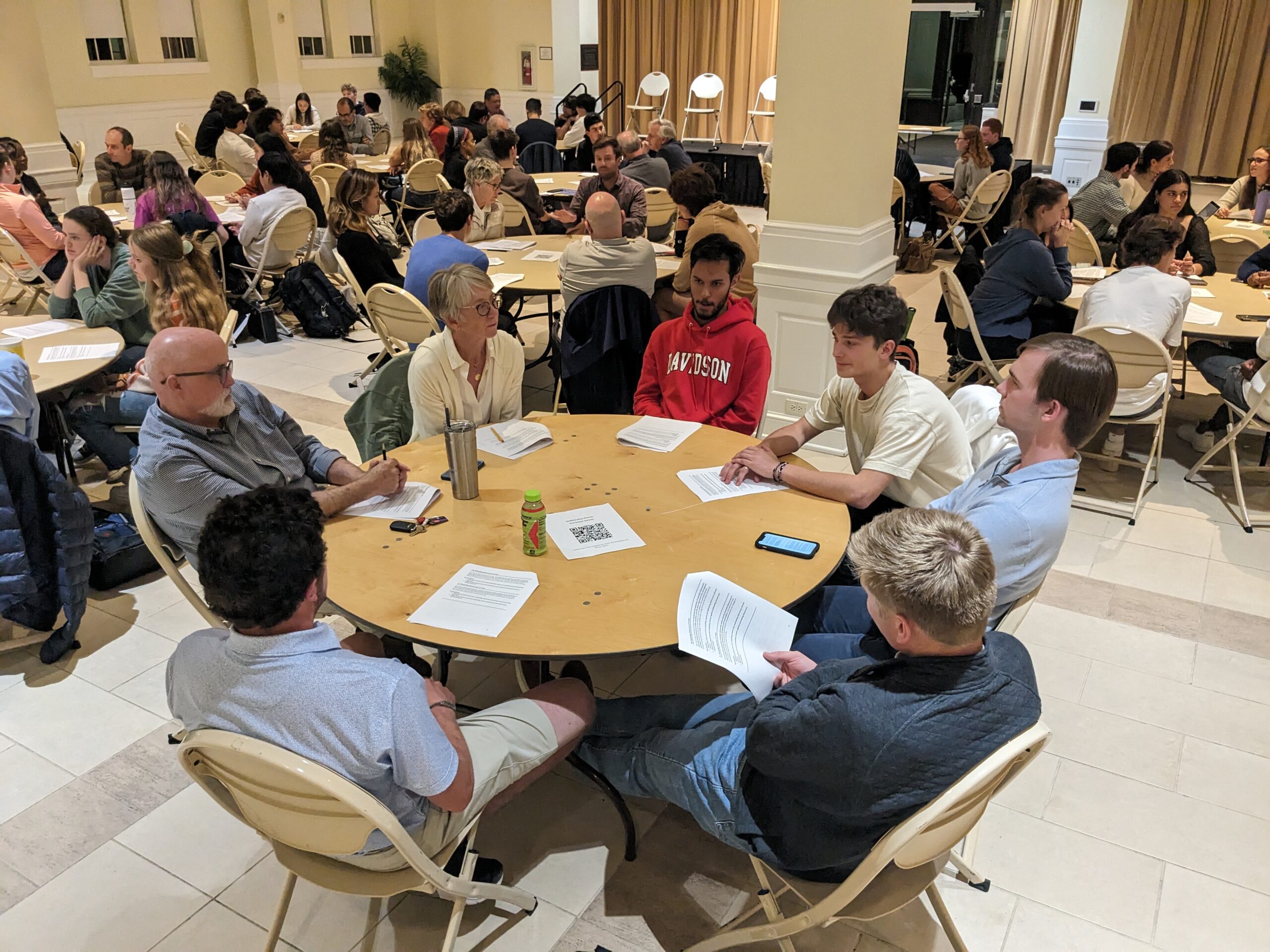
Flo Moser ’26 (DCI Fellow)
On Friday, January 19, the Deliberative Citizenship organized a Semester Kickoff Party to start the semester by engaging in deliberative practice. In addition to the table with the pizzas and drinks, many tables were assigned to different subject areas. For example, there were tables on international topics, economics, American politics, technology, etc. On each table, there were cards with conversation topics, which were then discussed by the participants under the guidance of the deliberative facilitators. For instance, one card from the economics table asked whether the minimum wage should be lower or higher. Usually, topics like this are said to polarize and divide society. On this day, however, they brought people together.

In today’s increasingly polarized society, finding common ground and fostering understanding between opposing viewpoints has become a formidable challenge. The social media echo chambers and the divisive rhetoric in public discourse often lead to a widening gap between individuals and groups. However, there is a powerful tool that has the potential to mend these fractures and build bridges of understanding: deliberative practice.
Polarization in society arises from the deepening divisions between individuals with differing opinions, values, and beliefs. This phenomenon is fueled by a need for more meaningful communication and a growing unwillingness to engage with perspectives that differ from our own. In such an environment, breaking down these barriers and creating spaces for constructive dialogue is crucial.
Deliberative practice involves intentionally and thoughtfully discussing issues among individuals with diverse perspectives. It goes beyond mere debate, emphasizing active listening, respectful engagement, and a commitment to finding common ground. This process encourages participants to examine their beliefs and critically understand the nuances of opposing viewpoints.
One of the critical elements of deliberative practice is the art of listening. In a society where people are often quick to express their opinions without truly hearing others, fostering a culture of active listening is transformative. When individuals are willing to listen, they open themselves to understanding the motivations, fears, and aspirations underlying diverse perspectives. This empathetic approach is a cornerstone of overcoming polarization.
Deliberation practice taps into a fundamental human desire—the urge to be part of the solution. Many people are growing weary of the toxic environment created by polarization and yearn for constructive ways to contribute to positive change. Deliberation provides an avenue for individuals to actively engage in shaping solutions rather than perpetuating the cycle of division.
One of the main drivers of polarization is confirmation bias—the tendency to seek out information that confirms our pre-existing beliefs. Deliberative practices encourage participants to confront and challenge their biases by exposing them to alternative viewpoints. This process helps individuals move beyond their comfort zones and fosters a more comprehensive understanding of complex issues.
In a world marked by polarization, deliberation emerges as a powerful antidote. By promoting active listening, a commitment to understanding diverse perspectives, and a shared sense of responsibility for solutions, deliberation can bridge divides and cultivate a culture of unity. As the many participants at the DCI Kickoff Party showed, people are willing to listen to others’ opinions, even on the most polarized topics, because they strive to be part of the solution. This urge we have to be part of the solution, combined with a willingness to engage in respectful dialogue, can create a more harmonious and inclusive society. As we embrace deliberation, we take a significant step towards healing the fractures in our communities and building a future grounded in understanding and collaboration.


